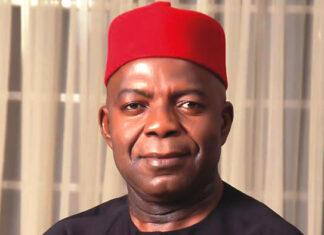The Nigerian IT start-up environment is capable of generating $3 billion annually, the Director-General of the Nigeria Information and Technology Development Agency (NITDA), Kashifu Inuwa Abdullahi, has said.
The NITDA helmsman who disclosed this in an interview with Economic Confidential noted that the development translates to $30 billion revenue generation by 2030.
Abdullahi noted that realizing the projection will entail harnessing the power of the internet by Nigerian innovators, adding that the Nigerian government is creating an enabling environment for start-ups to thrive.
The director-general described Nigeria as a country with great potential, going by its economic size, which, he said, makes up 18 per cent of Africa’s GDP.
“Africa, apart from China, has the opportunity to benefit from the new world we are creating. Our size, our population is of advantage because the world is shifting from the way we eat, the way we work and the way we do things.
“This new normal is powered by technology and technology is derived by people. People that drive this technology migration are young people and Africa has the highest youth population in the world.
“It is also projected that by the year 2050, Africa will have 1 in 3 youths in this world,” he said.
This, he said, is a potential advantage for Africa that Nigeria needs to harness well in order to benefit from the new economy, noting that three trends are shaping and creating the African economy.
According to him, the three trends, include increase, affordability and fast internet speed across the continent; startups to transform business landscape and the general economy.
He further explained that when you look at the emerging technology ecosystem, and the market they are creating, you will realize that there are two promising emerging technologies that are going to change a lot of things in the world: Blockchain and Artificial Intelligence.
He said that based on two reports by PWC, they projected that by year 2030, Blockchain technology will add up to $1.76 trillion to global GDP. And based on that report, they said that developing countries, at least, can add 4 percent of the GDP if they use that technology. For example, Nigeria’s GDP today is more than $400 million. The 4 percent of $400 million is more than $10 billion. That is the minimum GDP Blockchain technology can generate.
He further said that in another report, PWC projected that Artificial Intelligence can add more than $10 trillion to the global GDP by 2030 and based on that report, they said developing countries like Nigeria can add up to 5.6 percent to the GDP. So, still Nigeria, let’s say we are targeting only $10 billion which is far less than 5.6 percent of our GDP today. So, you can see we have 20 billion already.
“We are doing a lot of things to ignite innovative activities in these sectors like for Blockchain, we have developed National Adoption Strategy as approved by the Minister of Communication and Digital Economy, Dr Isa Ali Pantami. Because they are foundational technologies, they cut across so many sectors. So, we have developed that foundational strategy and we are working with the startups ecosystem to develop prototypes and identify the most promising ones”.
A member of both British Computer Society (BCS) Nigeria Computer Society (NCS) and the 1st Cisco Certified Internetwork Expert (CCIE) in Nigeria’s Public Sector, Kashifu remarked that in the area of Artificial Intelligence, Nigeria has built the National Centre for Robotics and Artificial Intelligence which is helping to harness these potentials. So, that’s $20 billion out of the $30 billion that we said.
“And today, based on Startups Genome report of 2020, Lagos startups ecosystem is valued at more than $2 billion and also recently, two of our startups have reached unicorn level that means evaluation of more than $1billion each. That is Flutterwave and Interswitch.”
“So, now we have $4 billion. Lagos ecosystem has $2 billion, Flutterwave $1 billion, Interswitch $1 billion, and then Jumia is already valued at $1.9 billion. Roughly you have $6 billion in Lagos alone talk less of the other parts of the country”.
Abdulahi said the media and entertainment industry is powered by digital technology, mostly startups, and based on PWC report also, the Nigeria media entertainment sector will be valued at $10 billion by 2023. So, you can see that we are almost at that targeted $30 billion.
“So, we hope we will exceed that target and we are on track based on our initiatives, based on government policies like the National Digital Economy Policy and Strategy (NDEPS), and other government interventions in form of policies and infrastructural interventions. All these can help us to reach that target of $30 billion by 2030.




























